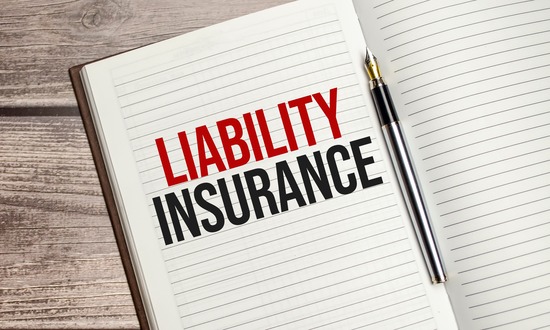If you’re considering becoming a plumbing contractor, you may be wondering what states require you to have a license. While not every state requires plumbing contractors to hold a license, many do and the requirements vary from state to state. Some states only require licensing for certain types of projects or for those that involve working on gas lines.
Definition of Plumbing Contractor
A plumbing contractor is someone who specializes in the installation, maintenance, and repair of pipelines, drains, fittings, fixtures, and other related water and sewage systems. A licensed plumber is responsible for ensuring that these systems are up to code and functioning properly. They may also provide advice on how best to maintain the system’s integrity and look for signs of damage or wear-and-tear.
Overview of Plumbing Contractor License Requirements
Depending on where you live, you may need to acquire a license in order to work as a plumbing contractor. Most states require all contractors to be licensed, while others only require those who work on gas lines or residential projects. The requirements for licensing vary from state to state, so it’s important to familiarize yourself with the regulations.
The states that don’t require a plumbers license are Kansas, Missouri, Nebraska, Pennsylvania, and Wyoming. While these states don’t require a license, you may need one at the local level so be sure to check with city regulators about licensing requirements.
Types of Plumbing Licenses
When it comes to plumbing licenses, there are several different types you may need to acquire. Depending on the type of work you plan to do and the state in which you live, you may need to have a master plumber license, journeyman plumber license, or an apprentice plumber license.
Master Plumber License
If you plan to become a plumbing contractor, you may need to acquire a master plumber license. This type of license is typically required for those who are involved in the installation and repair of complex systems such as water heaters, gas lines, and other fixtures. To obtain a master plumber license, you must pass a series of tests that cover topics ranging from basic safety and plumbing specifics.
Journeyman Plumber License
A journeyman plumber license is a lesser license than a master plumber license. It’s typically required for those who are involved in more general plumbing work, such as repairing and maintaining existing systems. To obtain a journeyman plumber license, you must complete an apprenticeship program that usually lasts two to four years and consists of on-the-job training. Additionally, you must also pass a series of tests that demonstrate your knowledge of safety regulations and general plumbing practice.
Tradesman Plumber License
A tradesman plumber license is a great way to become a qualified plumbing contractor. It’s an entry-level license that allows you to work on basic plumbing projects and repairs, such as faucet replacements, drain cleaning, and other small tasks. To obtain a tradesman plumber license, you must complete an apprenticeship program that usually lasts one to two years and consists of on-the-job training. Additionally, you must also pass a series of tests that demonstrate your understanding of safety rules and plumbing skills.
Apprentice Plumber License
If you’re just starting out in the plumbing industry, an apprentice plumber license could be your ticket to success. This type of license is designed for those who are just beginning their plumbing career and are looking for an entry-level license that will allow them to work on basic projects. To obtain this license, you must enroll in an apprenticeship program that usually lasts one or two years and consists of on-the-job training. Additionally, you must also pass a series of tests that review safety rules and specific plumbing tasks.
Application Process for Obtaining a Plumbing Contractor License
The application process for obtaining a plumbing contractor license varies from state to state, but there are some general steps you’ll need to take in order to become a licensed contractor. First, you’ll need to determine what type of license you need (master, journeyman, tradesman, or apprentice). Then, you’ll need to complete an apprenticeship program that consists of on-the-job training and usually lasts one to four years. Once the apprenticeship is complete, you can move up the chain of license types.
Prerequisite Qualifications
In order to become a licensed plumbing contractor, you’ll need to meet certain prerequisite qualifications. These qualifications may vary slightly from state to state, but typically include having a high school diploma or GED, completing an apprenticeship program of at least one year in length, and passing the relevant licensing exams. Additionally, you may also be required to have certain certifications or experience in the field. For example, some states require plumbers to have certification in backflow prevention.
Required Documentation and Fees
In order to become a licensed plumbing contractor, you’ll need to provide certain documentation and pay applicable fees. The exact documents and fees you’ll need may vary from state to state, but generally, you’ll be required to submit proof of your high school diploma or GED, proof of completion of an apprenticeship program, and the relevant licensing exam results. Additionally, you may be required to provide other documents such as a certificate of liability insurance.
Fees vary from state to state. You can expect to pay anywhere from $75 to $300 for a license that lasts up to two years.
Insurance Requirements for Plumbers
As a plumbing contractor, it’s important to make sure you’re aware of all the necessary insurance requirements. Depending on the type of work you do and where you do it, there may be certain policies that are necessary in order to operate legally and protect yourself from liability. Common types of insurance policies for plumbers include general liability, commercial auto, tools and equipment and workers’ compensation.
Now that you understand the basics of plumbing contractor licenses and insurance requirements, it’s important to make sure you’re up-to-date on any changes or updates in your state. It’s also essential to maintain a good working relationship with your insurance provider to ensure you have the coverage you need for your particular type of work. Finally, remember that if anything ever goes wrong while working on a job, having an updated license and insurance can make all the difference when making a claim.
Plumbing Contractor Workers’ Compensation Insurance
Workers’ compensation insurance is a type of insurance that provides benefits to employees injured or that become ill due to their job. This type of insurance covers medical expenses, lost wages, and other costs associated with an employee’s injury or illness. It also provides death benefits in the event of a worker’s death. In most states, it’s illegal for employers to not have workers’ compensation insurance, so it’s important for plumbers to make sure they maintain this policy if they have employees.
Plumbing Contractor General Liability Insurance
General liability insurance is an important type of coverage for any plumbing contractor and can provide some much needed peace of mind. This type of insurance protects you from liability claims and covers costs associated with bodily injury, property damage, personal injury, advertising injuries, lawsuits, and other related expenses. It can also help cover the cost of defending yourself in court if necessary. As such, having a general liability insurance policy is essential for any plumber who wants to protect themselves and their business from potential claims.
Commercial Auto Insurance
Commercial auto insurance is an important type of coverage for plumbers who use vehicles to do their job. This type of insurance provides protection from liability claims if you or one of your employees causes an accident while driving a work vehicle. It also covers the cost of repairs for any damage caused, as well as medical bills for any injuries that occur. Additionally, commercial auto insurance helps protect you from financial loss in the event that someone steals or damages your vehicle due to vandalism or natural disasters such as floods.












